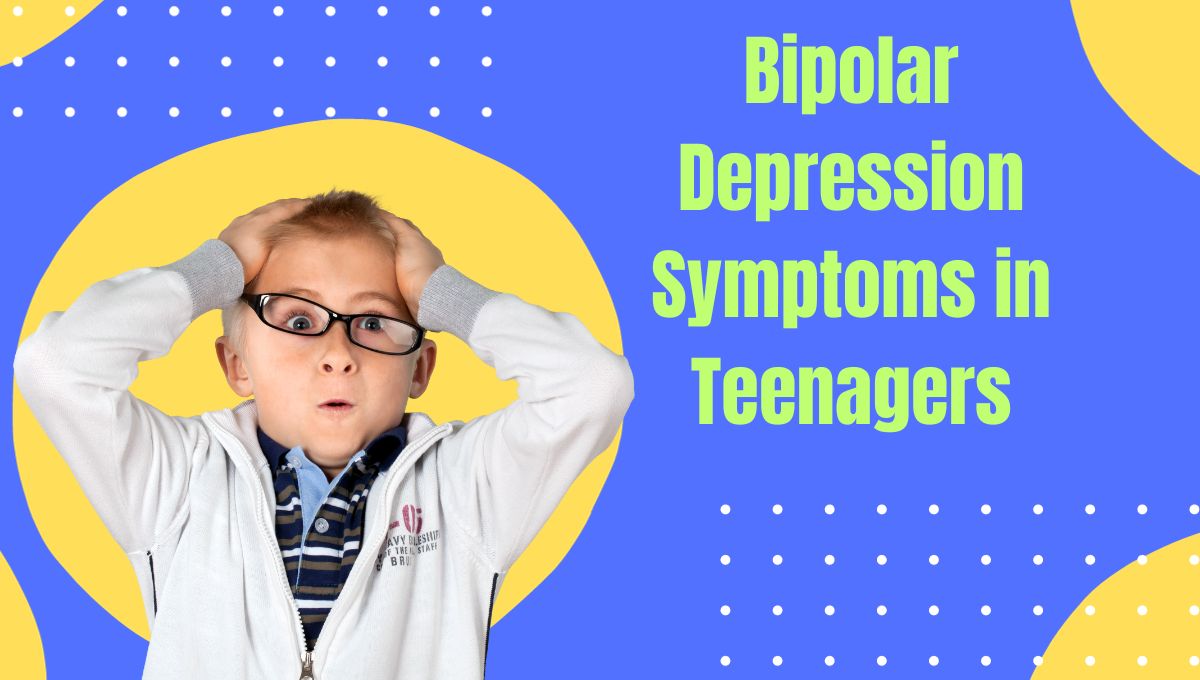Bipolar Depression in Teenagers: A Challenging Journey
Bipolar depression in teenagers can be a challenging journey both for the teenagers experiencing it and their families. Understanding the symptoms, signs, and ways to support those affected is crucial. In this article, we’ll delve into the world of bipolar depression symptoms in teenagers, offering insights, support, and guidance for both teenagers and their loved ones.
What is Bipolar Depression?
Bipolar depression, also known as manic-depressive illness, is a brain disorder that causes unpredictable swings in mood, energy, activity levels, and the ability to handle everyday tasks. Among teenagers, these mood swings can be particularly intense, leading to disruption in school, relationships, and self-esteem.
Signs and Symptoms of Bipolar Depression in Teenagers
Recognizing the signs and symptoms of bipolar depression in teenagers is essential for early intervention. Key symptoms to watch for include:
- Periods of intense sadness or depression.
- Drastic changes in sleep patterns (insomnia or oversleeping).
- Irritability and anger outbursts.
- Reckless or risky behaviors, like substance use or unsafe driving.
- Difficulty concentrating, leading to poor academic performance.
By being vigilant, family members and caregivers can help teenagers get the treatment they need.
Understanding the Teenage Brain
The teenage brain is still undergoing development, particularly the prefrontal cortex, which is responsible for decision-making, impulse control, and regulating emotions. This immaturity can make bipolar depression more severe in teenagers compared to adults. Understanding this developmental stage is crucial in offering effective support.
Triggers and Risk Factors for Bipolar Depression
Various triggers and risk factors can contribute to the onset of bipolar depression in teenagers, including:
Genetic Predisposition
Teens with a family history of bipolar disorder are at a higher risk of developing the condition.
Environmental Factors
Stressful events such as parental divorce, bullying, or loss of a loved one can trigger depressive episodes in susceptible teenagers.
Substance Abuse
Using drugs or alcohol may exacerbate mood swings, increasing the likelihood of more severe manic or depressive episodes.
Hormonal Changes
The hormonal changes during puberty can act as a catalyst for mood swings, making teenagers more vulnerable to bipolar depression.
Diagnosing Bipolar Depression in Teenagers
Diagnosing bipolar depression in teenagers can be complex due to the overlap with typical adolescent mood swings. A professional mental health evaluation is required. This includes:
- Observing mood changes over time.
- Evaluating sleep patterns and energy levels.
- Identifying risky or impulsive behavior.
Treatment Options for Teenage Bipolar Depression
Once diagnosed, treating teenage bipolar depression typically involves a combination of medication, therapy, and lifestyle changes.
Medication
Medications such as mood stabilizers, antipsychotics, and antidepressants may be prescribed to manage mood swings and depressive episodes. It’s essential to work closely with a healthcare provider to monitor the effectiveness and side effects of these medications.
Therapy
Cognitive Behavioral Therapy (CBT) and family therapy are common approaches to help teenagers understand their emotions and develop coping strategies. Therapy can also improve family dynamics and provide a support system for the teen.
Lifestyle Adjustments
Encouraging a healthy lifestyle with regular exercise, proper nutrition, and a consistent sleep schedule can have a profound impact on managing bipolar depression.
Coping Strategies for Teenagers
Helping a teenager cope with bipolar depression requires a multi-faceted approach:
Regular Physical Activity
Exercise has been shown to improve mood by releasing endorphins and reducing stress.
Healthy Sleep Patterns
Establishing a consistent sleep routine is critical for maintaining mood stability. Teens should aim for 8-10 hours of sleep each night.
Stress Management
Stress is a major trigger for bipolar episodes. Mindfulness techniques, deep breathing exercises, and journaling can help teens manage their stress more effectively.
Supporting a Teenager with Bipolar Depression
If you have a teenager in your life dealing with bipolar depression, your support is invaluable. Here’s how you can help:
Provide a Safe Space
Let your teen know that they can talk to you without fear of judgment. Creating a safe and supportive environment can build trust and open lines of communication.
Encourage Open Communication
Encourage your teenager to express their feelings. Sometimes, just listening and offering emotional support can make a huge difference.
Educate Yourself
The more you know about bipolar depression, the better you can support your teen. Understanding the symptoms, triggers, and treatments will allow you to provide informed and compassionate care.
Communicating Effectively with Your Teenager
Effective communication is key in supporting a teenager with bipolar depression. Here are some tips:
- Listen Actively: Make your teen feel heard and validated.
- Avoid Judgment: Criticism or negative reactions can worsen their symptoms.
- Offer encouragement: Remind them that they are not alone and that help is available.
Self-Care for Caregivers
Supporting a teenager with bipolar depression can be emotionally taxing. Don’t forget to take care of yourself.
- Seek Support: Join a support group for caregivers.
- Set Boundaries: Don’t feel guilty about taking time for yourself.
- Practice self-care: Engage in activities that help you relax and de-stress.
Teenage Bipolar Depression and School
Bipolar depression can severely impact a teen’s academic performance. Teachers and school staff should be informed about the condition so they can offer the necessary support, such as extended deadlines or a reduced workload during depressive episodes.
Seeking Professional Help
Professional help is essential for teenagers dealing with bipolar depression. Encourage your teen to speak to a school counselor, therapist, or psychiatrist. Early intervention is key to managing the condition effectively.
Understanding Medication
Medications play a crucial role in managing bipolar depression, but it’s important to understand how they work. Regular check-ups with the prescribing doctor will ensure that medications are effective and that any side effects are addressed.
Lifestyle Changes to Support Mental Health
Making small lifestyle changes can make a big difference in managing bipolar depression.
- Exercise regularly to boost mood.
- Maintain a consistent sleep schedule.
- Eat a balanced diet to nourish both the body and mind.
- Avoid substance abuse and seek healthier ways to cope with stress.
Conclusion
Bipolar depression in teenagers is a serious condition, but with the right knowledge, support, and treatment, teens can lead fulfilling lives. Recognizing the early signs, seeking professional help, and implementing coping strategies can significantly improve outcomes for both the teenager and their family.
By providing love, patience, and understanding, caregivers and family members can play a crucial role in helping teenagers manage their condition and achieve mental well-being.
FAQs
- What are the common signs of bipolar depression in teenagers?
Intense mood swings, changes in sleep patterns, irritability, reckless behavior, and difficulty concentrating are common signs. - How is bipolar depression diagnosed in teenagers?
Diagnosis is done through a professional evaluation, considering mood changes, sleep patterns, and energy levels over time. - What treatment options are available for teenage bipolar depression?
Treatment includes a combination of medication, therapy (like CBT), and lifestyle changes to manage symptoms. - How can I support a teenager with bipolar depression?
Offering a supportive, non-judgmental environment, encouraging healthy habits, and maintaining open communication are essential. - What should caregivers prioritize when supporting a teenager with bipolar depression?
Caregivers should focus on self-care, setting boundaries, and seeking support to manage their own well-being while helping the teenager.

